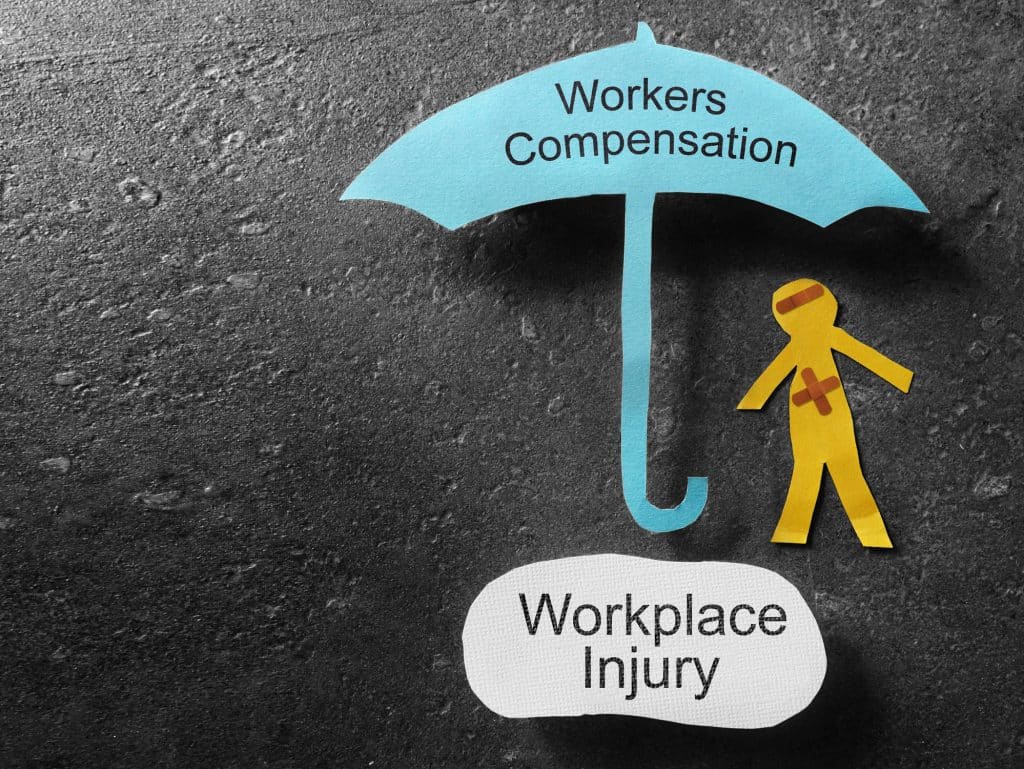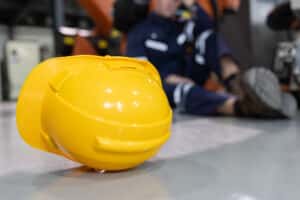
Generally speaking, workers’ compensation is available to any employee who is injured or acquires certain types of illnesses at the workplace, or during work-related activities, according to Washington State law.
But obtaining the compensation you deserve can be a lengthy, daunting process. You must know how to navigate the maze of bureaucratic red tape and deadlines required in the claims process.
About 70% of workers’ compensation claims are handled by the Washington State Department of Labor & Industries (L&I), and the remaining employers are self-insured. A very small number of workers are covered through other medical-legal systems, including federal workers’ compensation and the Longshore and Harbor Workers Act.
Contact your human resources department to determine what type of workers’ comp coverage you have, or search Washington’s self-insured employer database to rule out that option. Our lawyers can also help you determine which type of insurance your employer has and guide you through the process.
Read below to find out if you qualify for a workers’ comp claim!
Who Qualifies For A Workers’ Compensation Claim?
If you’re a full- or part-time employee in the state of Washington, and your injury or illness occurred in relation to your work functions or activities, you’re eligible to file an L&I claim and receive various benefits.
However, certain types of workers don’t qualify for workers’ comp benefits, including consultants, independent contractors, freelancers, or members of the gig economy.
The doctor who evaluates your injury or illness will determine whether it is work-related or not, and file the necessary paperwork with L&I to kickstart the claims process.
Keep in mind that an L&I claim can be denied for any number of reasons. While an initial denial does not rule out the possibility of obtaining benefits, it does complicate the process.
Here Are Some Common Reasons Why L&I Workers’ Compensation Claims Are Denied:
- The injury is determined to have occurred outside work.
- An opinion that the injury is not as bad as claimed, or non-existent.
- The injury occurred in a parking lot, which means it is not covered.
- If the injury is a mental health condition, it is often denied due to a lack of medical documentation.
- A doctor feels that the injury as described doesn’t match the diagnosed medical injury.
If your workers’ comp claim is denied for any reason, you have the right to protest or appeal the decision. You can protest any L&I decision within 60 days of the date it was issued by writing a letter to your claim manager. If you disagree with the decision regarding your protest, you may appeal to the Board of Industrial Insurance Appeals within 60 days of that decision.
Emery Reddy can salvage your denied L&I claim. Our experienced workers’ compensation attorneys have successfully litigated thousands of cases.
Learn more about common workers’ comp claim mistakes.
Can I Choose My Own Doctor?
The short answer is yes. You have the right to choose your own doctor as long as they are part of the L&I network of medical providers.
Be sure to find a supportive doctor because they will make important decisions throughout your L&I claim process.
When you initially seek medical care for your work-related injury or illness, that doctor visit or emergency room visit will be covered by L&I, regardless of whether they are part of L&I’s network of medical providers or not.
What Types of Benefits Am I Eligible For?
L&I has a variety of workers’ comp benefits designed to help employees recover from a workplace injury or illness and return to work.
Here are some of the most common benefits:
- Medical Benefits
- Wage Replacement
- Loss Of Earning Power Benefits
- Partial Disability Benefits
- Total Disability Benefits Or L&I Pension
- Vocational Benefits
- Death Benefits and Survivor Pensions
What Kinds of Medical Benefits Are Covered?
L&I generally covers all medical costs associated with your work-related injury or illness, including doctor appointments, treatments, surgeries, occupational therapy, and prescription medications. You can even apply for transportation costs to and from appointments to be covered.
These benefits typically end when you recover to the point that your injury or illness has reached maximum medical improvement (MMI), or when your claim closes.
If your workers’ compen claim has closed but you still need medical care, you and your doctor can protest the closure within two months of its effective date. If it has been more than two months since the closure, you and your doctor will have to request that your claim be reopened. An attorney can help.
Learn more about L&I medical benefits.
How Does Wage Replacement Work?
If you have to miss work due to your injury and your doctor certifies that you’re unable to work, you may be eligible for a wage replacement benefit, also called “time-loss compensation.”
Wage replacement covers between 60-75% of the wages a worker was earning at the time of the injury. Because the IRS considers it a disability benefit, these payments are not subject to taxes. Therefore, you may end up taking home about the same amount you were earning after taxes prior to the injury.
If all goes as planned, your first check will be mailed within two weeks from the date that your doctor notifies L&I or your self-insured employer of your eligibility. However, more information may be required to complete eligibility requirements.
Wage replacement checks are typically mailed (or sent electronically) twice per month.
What Are The Most Common Injuries Covered By L&I?
Over the last decade, roughly 115,000 workers were injured on the job each year in Washington state. While the majority of the incidents were common physical injuries like slips, trips and falls, others include repetitive stress injuries, occupational illnesses, hearing loss, and anxiety and depression.
Here’s a partial list of some of the most common injuries in Washington:
- Physical Injuries
- Spine, Back, Neck, Or Shoulder Injuries
- Hip & Knee Injuries
- Repetitive Stress Injuries
- Carpal Tunnel Syndrome
- Construction Site Accidents
- Scaffolding accidents and falls
- Crane accidents
- Accidents involving compressed gases or chemicals
- Defective machinery or equipment
- Explosions, welding & cutting accidents
- Depression & Anxiety
- Hearing Loss
- Occupational Disease Or Illness
- Asthma
- Asbestos poisoning
- Coal miner’s pneumoconiosis (black lung)
- Eczema
- Urticaria
- Skin cancer
- Carpal tunnel syndrome
- Lead poisoning
- Cancer, acute myeloid leukemia (AML), or other diseases related to exposure to benzene, mold, silica, carbon monoxide, lead paint, chemicals, and carcinogens
How Do I File A Workers’ Compensation Claim?
If you are injured on the job, you can open a Washington State workers’ compensation claim by calling 1(877) 561-3453, filing online, or filling out forms at your doctor’s office.
Keep in mind that you will need help from your doctor to file the L&I claim. Your doctor will need to complete each of the following tasks:
- Confirm that your injury is, in fact, work-related.
- Determine your ability to return to work.
- Complete the Accident Report form.
You should report the injury or illness as soon as possible to your employer. Then seek medical attention and start the claims process.
Strict deadlines that apply to different claims:
- For on-the-job injuries, you must file a claim within one year of the date of the accident.
- For occupational disease claims, you must file within two years from the time your doctor diagnosed the work-related condition.
Learn more about the workers’ comp claims process here.
Get in touch now for a free consultation. Our team will analyze your case and see how to get workers’ comp for your injury.
Call us today at (206) 771-7749.




